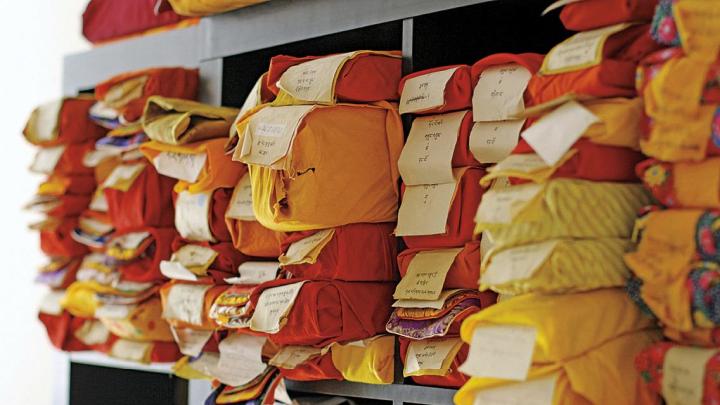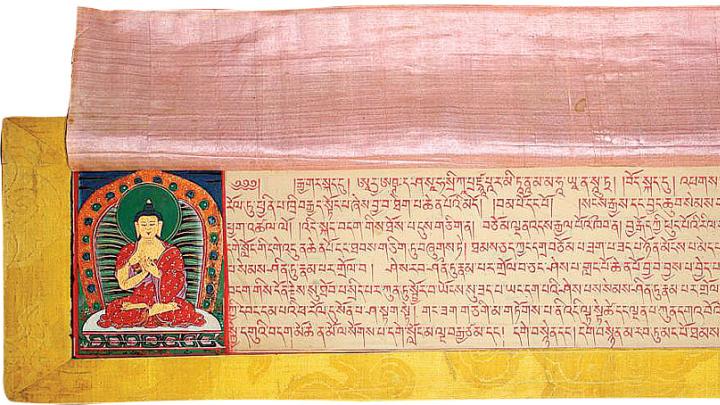This summer, Harvard Library has begun to upload onto its digital storage system 10 million pages of Tibetan literature that survived China’s convulsive Cultural Revolution, the movement between 1966 and 1976 that led to the destruction of countless Chinese and Tibetan literary texts. The project is the result of a partnership between Harvard Library and the Tibetan Buddhist Resource Center (TBRC), a nonprofit organization based in Harvard Square that has been acquiring, scanning, and digitally preserving Tibetan volumes since its founding in 1999.
Leonard van der Kuijp, professor of Tibetan and Himalayan studies at Harvard and president of the center’s board of directors, explained that an enormous number of Tibetan texts disappeared during the Cultural Revolution, which affected the Tibetan plateau as much as it did the rest of China. “But many books were somehow saved by local Tibetans, monks and laypeople who buried the books, put them in boxes, wrapped them in cloth, and buried them in the ground,” he added. “And now, slowly, these books are coming out.”
TBRC developed from the vision of Gene Smith, a librarian and Tibetologist who started his private collection of Tibetan books while serving at the New Delhi field office of the Library of Congress between 1968 and 1985. With van der Kuijp’s help, Smith established TBRC at the turn of the millennium in order to catalog, preserve, and make available the Tibetan literary heritage. After scanning and cataloging Smith’s 12,000-volume collection, the center began its continuing search for more Tibetan texts to preserve. TBRC has so far digitally preserved approximately 20,000 volumes dating from the eighth century to the twentieth, covering subjects ranging from Buddhist teachings and theories to philosophy, history, poetry, architecture, and medicine.
TBRC executive director Jeffrey Wallman and Richard Lesage, the Harvard librarian for South and South-East Asia who has helped spearhead the collaboration, said that it would take approximately a year to upload the files onto Harvard Library’s Digital Repository System (DRS), a digital storage service that will serve as a backup for TBRC’s own digital files. The DRS represents a “safe haven” for the digitized Tibetan texts, commented associate librarian for collection development Dan Hazen, who has helped coordinate the project. Harvard Library will also incorporate the TBRC catalog into the HOLLIS catalog, making the Tibetan texts available to the library’s users. (HOLLIS will not provide access to TBRC’s collections directly, but will redirect users to the TBRC database.) Hazen defined the collaboration with TBRC as one of Harvard Library’s “hallmark projects” since its recent administrative and organizational restructuring.
Despite all the political tensions that have arisen concerning China’s governance of the Tibetan region and people, the climate in China is now particularly favorable to the preservation of the Tibetan literary heritage. The government has recently passed a law protecting the Tibetan language, said Greg Beier, the center’s director of sustainability. “This is an ideal time for really getting involved with looking for the texts and making them available to the world.”









